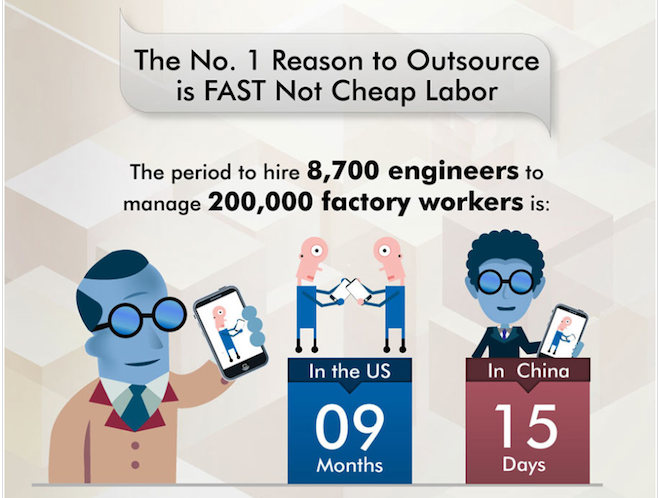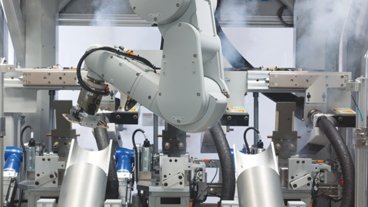American components in Apple's iPhone supply chain graphically detailed
A report examining Apple's component supply chain and global manufacturing details the source of the parts, workers and assembly involved in building the company's devices.
Source: Finances Online
Alex Hillsberg of Finances Online produced an infographic outlining the source of Apple's iPhone components, right down to the rare earth metals involved in manufacturing high tech parts from its display and speakers to its silicon and vibration motor.
"Most rare earth metals come from China," the report states, noting that 90 percent are mined in Inner Mongolia and China. The graphic also presents Apple's global workforce and depicts why Apple assembles most of its devices in China, emphasizing "fast, not cheep labor," as depicted in an excerpt of the infographic, above.
Hillsberg also draws attention to such rarely reported facts as Foxconn's production of 40 percent of the entire world's consumer electronics, including products from Amazon, Dell, HP Motorola, Nintendo, Nokia, Samsung and Sony.
Many reporters describe Foxconn as being an "Apple factory," particularly when describing suicides and industrial accidents that have occured there, even ones unrelated to the manufacturing of Apple products.
Apple's chief executive Tim Cook has in the past pointed attention to iPhone components made in the United States, stating in a 2012 interview with Brian Williams, "we’ve been working for years on doing more and more in the U.S. Next year, we’re going to do one of our existing Mac lines in the United States," a product he later revealed to be the Mac Pro.
Cook specifically noted Corning's 'Gorilla Glass' face for the iPhone as being manufactured in Kentucky and its A-series SoC processor manufactured at Samsung's Austin, Texas facility.
When asked about the labor costs involved with moving manufacturing back to the United States, Cook replied, "It’s not so much about the price as it is about the skills, etc. Over time, there are skills associated with manufacturing that have left the U.S.,†Cook said.
"The consumer electronics world was really never here," Cook stated. “It’s not a matter of bringing it back, it’s a matter of starting it here."
 Daniel Eran Dilger
Daniel Eran Dilger












 Wesley Hilliard
Wesley Hilliard
 Andrew Orr
Andrew Orr



 Amber Neely
Amber Neely

 William Gallagher
William Gallagher







